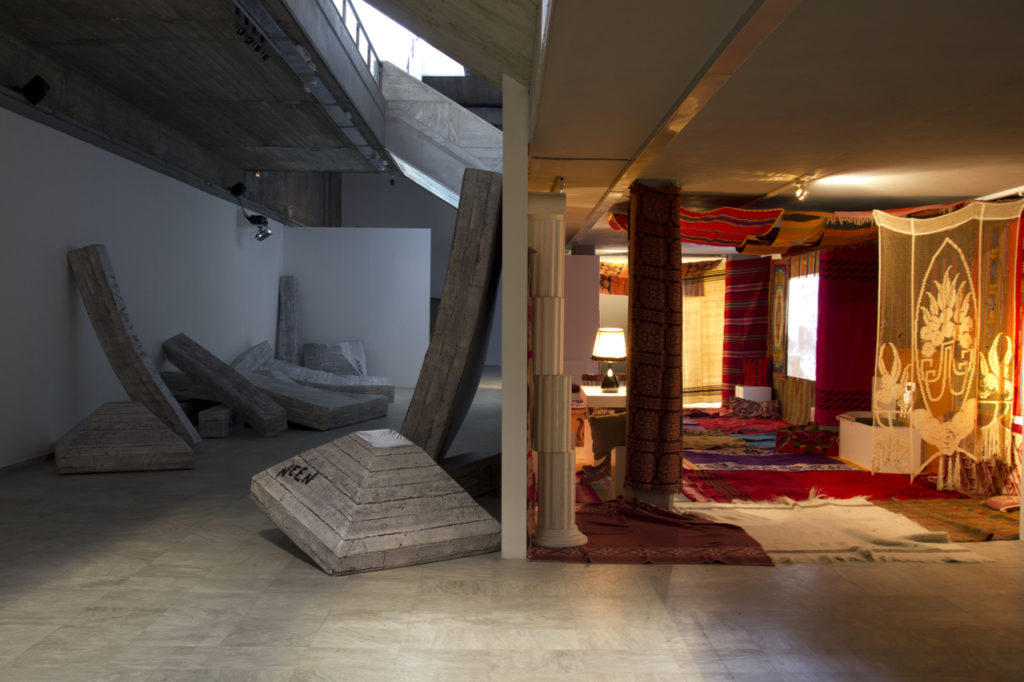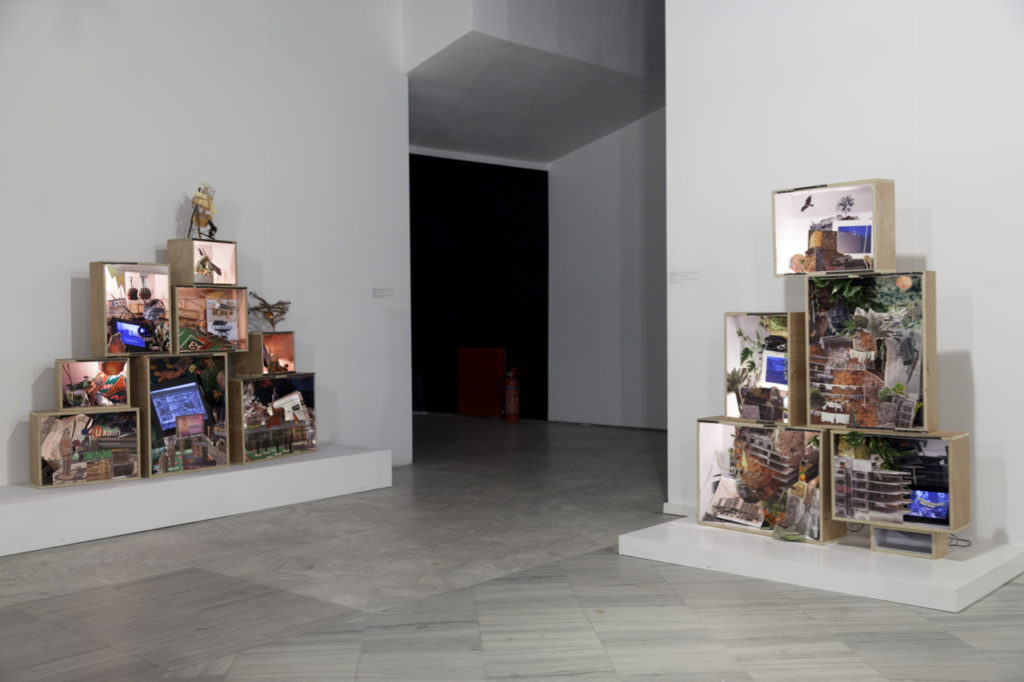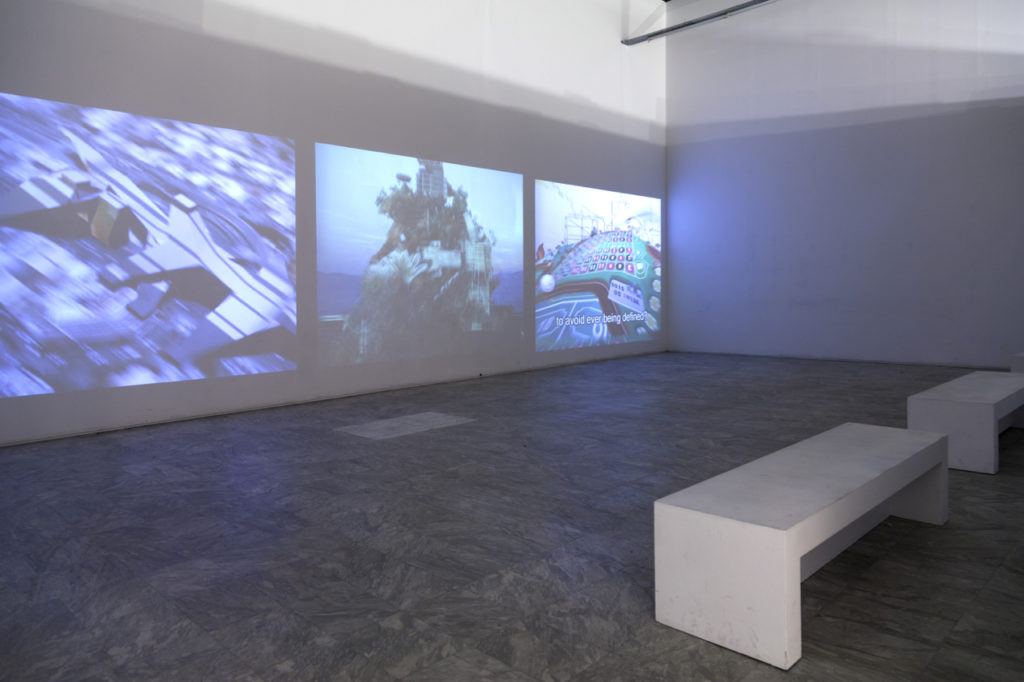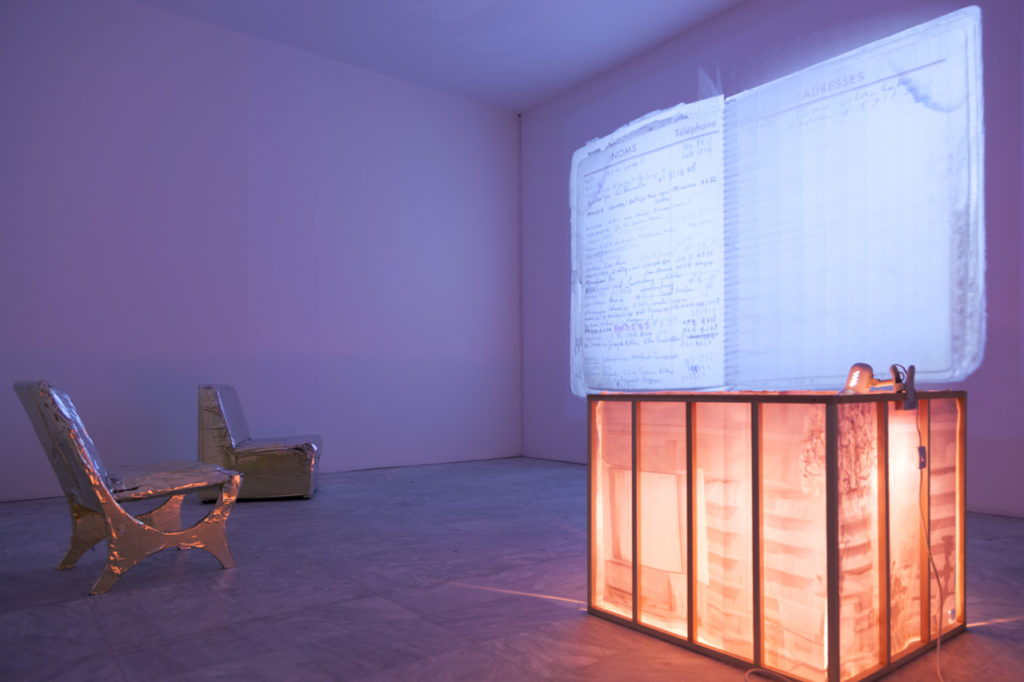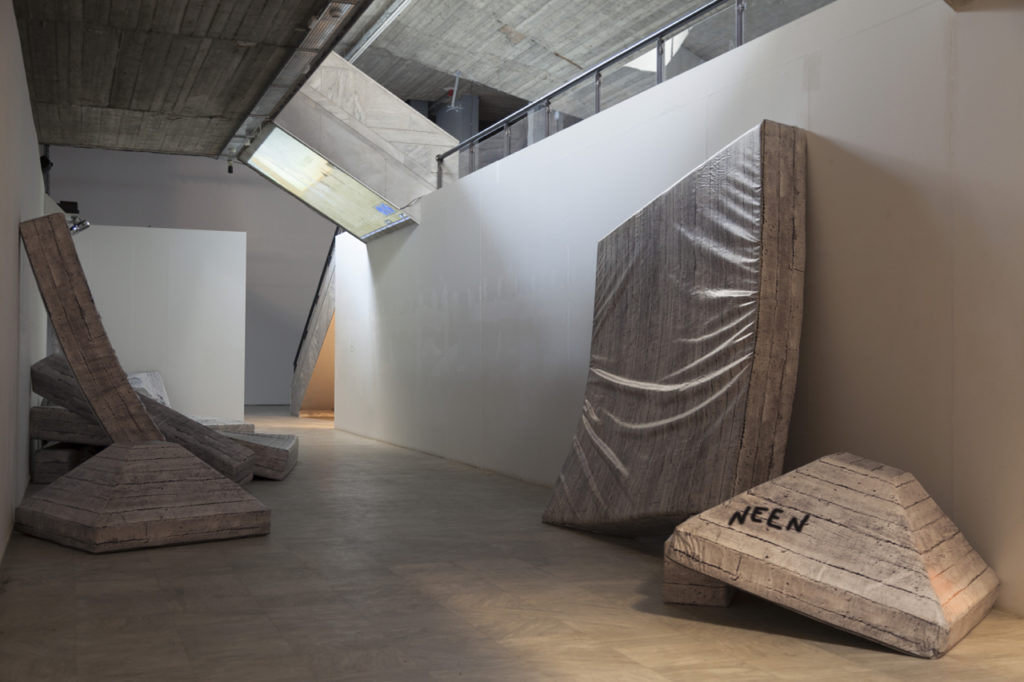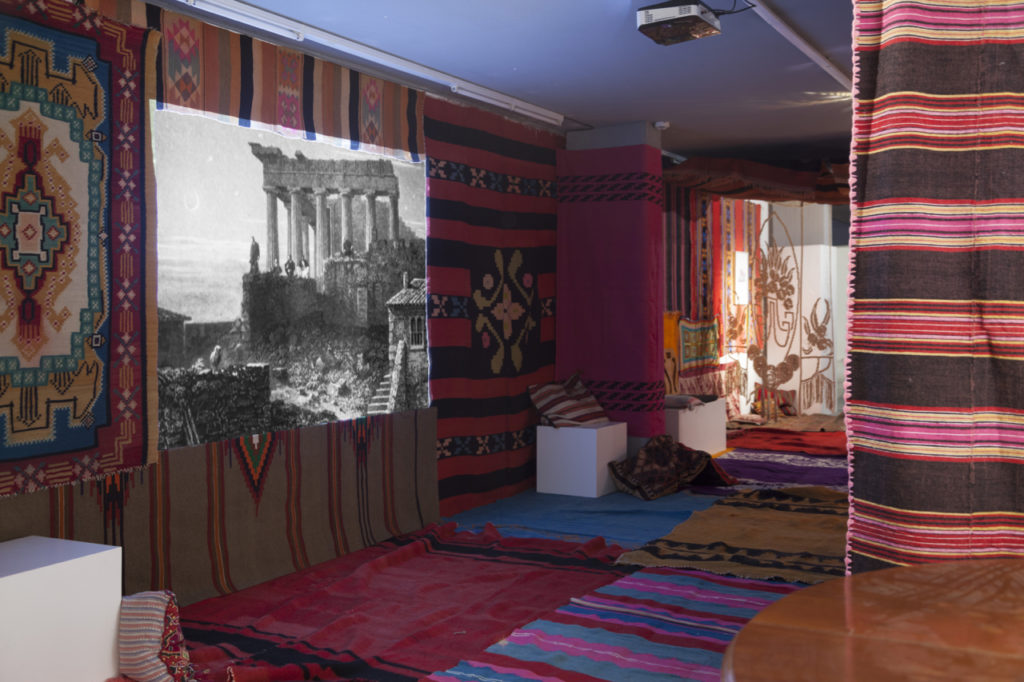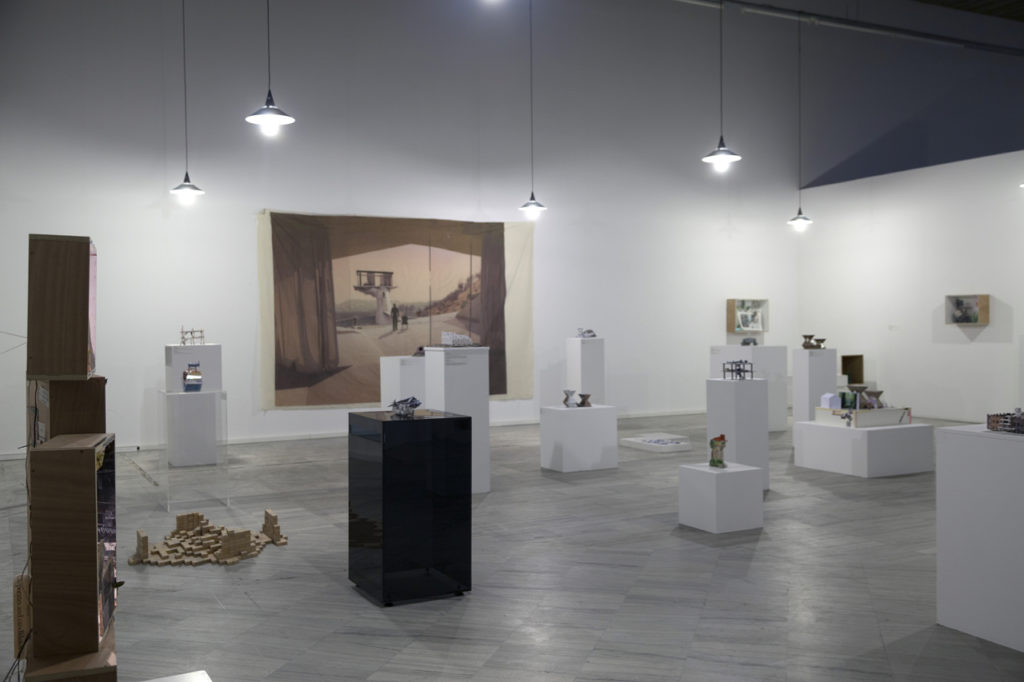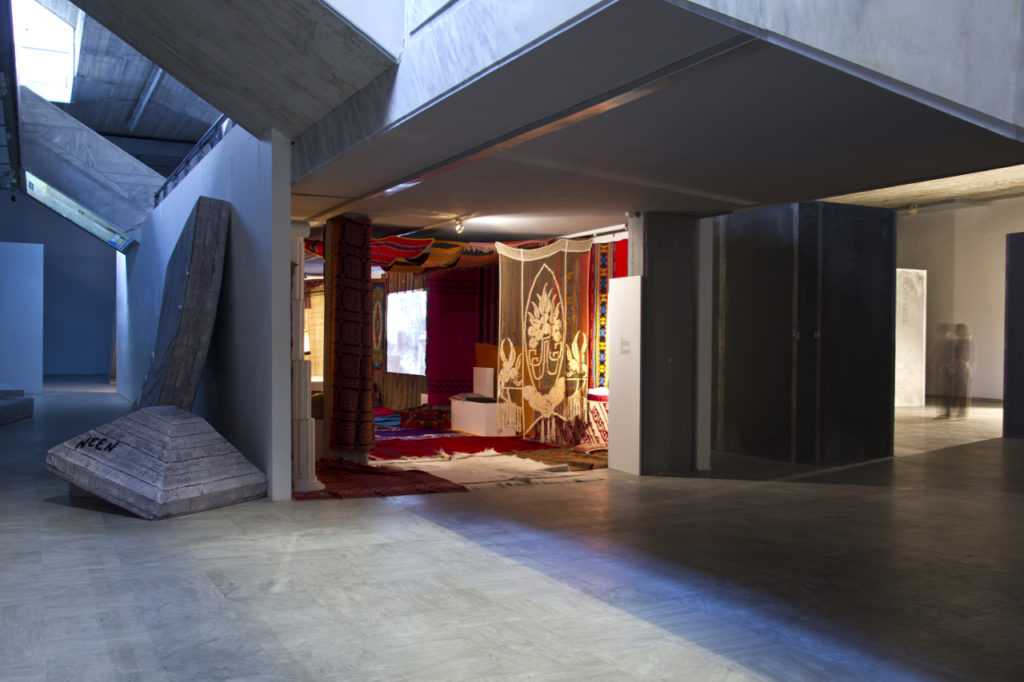Andreas Angelidakis
Every End is a Beginning
May 14, 2014–December 28, 2014National Museum of Contemporary Art, Athens
Every End Is A Beginning – Andreas Angelidakis
Curated by Andreas Angelidakis in collaboration with Daphne Vitali
What we call the beginning is often the end
And to make an end is to make a beginning.
The end is where we start from.
These verses from the Four Quartets by T. S. Eliot offered in 2006 instead of another interpretative commentary a broad translational horizon to the Walking Building by Andreas Angelidakis, as well as to The Grand Promenade itself, the large scale international exhibition of the Museum held as a preopening event, in which it was projected during the night on the façade of Syngrou Avenue, allegorically signifying its beginning and/or its end.
The boundaries of the end and of the beginning for the New EMST were transported on numerous occasions over the years that succeeded. Today, the retrospective of this important creator, architect, artist, writer, blogger, curator, in which central position holds the notion or/and the presence of the derelict building and its remodelling/transformation/metamorphoses, proposes us to cross the intermediate realm of transition from one situation to another, to experience the unknown as well as the open condition of the ‘in-between’, this third space between what was and what is not yet.
In the extremely interesting and experimental work by Andreas Angelidakis, where the internet is used as a lab of inter-artistic crossings, mixtures and as a surpassing of the conventional architecture of building, the critical and poetic, in the initial meaning of the word, boundaries of our hybrid era are tested. Through the virtual experience, through play and fiction, the role of the architect changes. Identity gives its place to multiple aspects and representations of the self which intervene in different cultural fields.
The exhibition of Andreas Angelidakis, designed by the architect himself, is one of them. Visiting his works through the identity of the Other, the curator, he does not reveal the secrets of the creator. He builds new meanings and interpretative environments. To him, the curating act itself becomes a space to be inhabited. A new work.
Anna Kafetsi
Director
